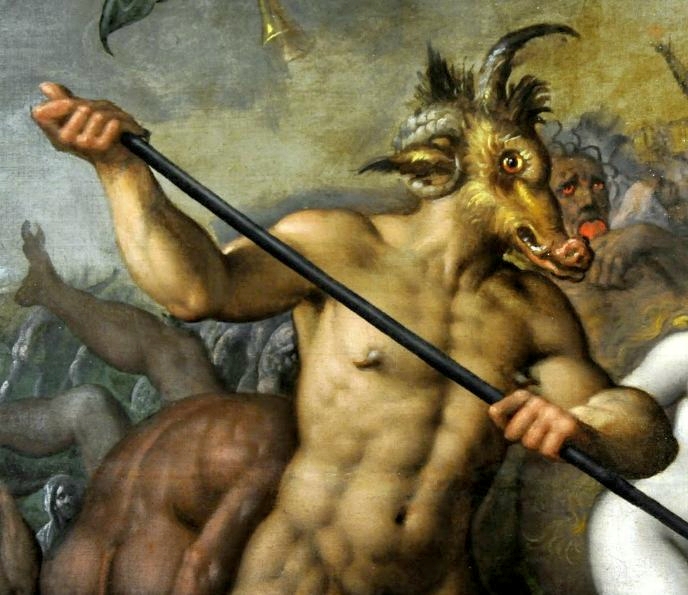There can be no disputing the following fact: the Catholic Church began with the birth, life, death, and resurrection of Jesus Christ. The first worshipers of the child Jesus as the future Messiah were Mary and Joseph. They knew very well, according to the Gospel of Luke, that Jesus would be miraculously conceived as the Son of God (Luke 1:35) and that all ages would call Mary “blessed” (Luke 1:46-48).
To this day the main title given to Mary by the Catholic Church is Blessed Virgin, fulfilling Mary’s prophecy. Pentecost is called the formal birthday of the Church, in the sense that the Holy Spirit descended upon the Apostles, as Jesus promised, and empowered them to spread the gospel not just to the Jews, but “to all nations” (Matthew 28:19). To “all nations” means that Christ established a universal Church. It should therefore be no surprise that this early universal Church would within the first century call itself Catholic (from the Greek word katholicos).
The New Testament Finally Canonized
During the first centuries of the Christian era the books we now know as the New Testament had existed since the time of the apostles, but were not gathered together and “canonized” until the 4th century. The official Canon was made necessary by the fact that other books had been written and widely read, but were much disputed as genuinely inspired by the Holy Spirit. In the year 382 AD a synod at Rome finalized the Canon of the News Testament under the authority of Pope Damasus. The twenty-seven books of the New Testament are definitely Catholic and their contents were undisputed for well over a thousand years until the Reformation.
The Protestant Objection
By the time of Luther and Zwingli in the early 16th century, a habit developed of reformers doubting certain canonical books in the New Testament that did not serve their purposes. These books included Apocalypse, the second epistle of Peter, the epistles of James and Jude, and the second and third epistles of John. But by the year 1700 AD the French bishop and theologian Jacques Bossuet could confidently assert that after two centuries of quarreling, Catholics and Protestants could agree upon the same Canon established under the authority of Pope Damasus. The New Testament today used by Protestants is in essence the the one approved by Pope Damasus. The gospels alone, with the sayings of Jesus contained, offer more of the most important wisdom than can be found in the collected works of Plato and Aristotle.
Protestantism Old and New
Heretical sects – which we may dub ‘old Protestantism’, or at least the seedbed thereof – have proliferated since the earliest days of the Church, such as Gnosticism, Arianism, Marcionism, etc. By the fifth century virtually all of these early heresies had perished. Catholicism, West and East, ruled exclusively for the next thousand years. The period of new Protestantism began modestly enough with Luther, Zwingli, and Calvin, but by the 20th Century had exploded into tens of thousand of denominations, proving that Christendom had been seduced by the same original sin of Adam and Eve, to rebel against the will of God. Protestantism began by rebelling against the Catholic Church, but ended by rebelling against itself as denominations multiplied without end.
The New Paganism
A new pantheon of pagan gods erupted during the Industrial Revolution, which had its origins in Great Britain. The new Deity to be worshiped was Money. The name of this new religion was Capitalism. There were many devils supporting this religion, the chief one being Moloch, who in ancient times required human sacrifice. This resurrection of Moloch required increased human sacrifice, even of small children who worked in mines and factories for barely a subsistence wage. Black tribes in Africa were cruelly raided and members kidnapped by coastal blacks, then sold and sent to cruelly governed plantations in North and South America. None of that was necessary but for the demand to profit, without conscience, from the labors of the poor and those unable to defend themselves from exploitation.
This lasted for two centuries until new technologies found ways to lessen the reliance upon exploitation. Organized labor unions fought to mitigate the vilest types of exploitation, including the lowest possible wages and the worst types of working conditions. But the worship of Money prevailed, so that the gains made by the unions in the North were offset by capitalists moving their factories first to the South, where unions did not exist, and finally to other parts of the world where, to this day, exploitation can be renewed with great vigour and cruelty, though that is not so visible to American consumers as it used to be.
What the Popes Said
Pope Leo XIII and Pope Pius XI admonished capitalists for their worship of Money. More abruptly and violently did Karl Marx react – or over-react – urging the overthrow of Capitalism and the establishment of yet another religion called Communism. Intended to be a solution to the worst evils in Capitalism, Communism introduced many wolves in sheep’s clothing. It began by promising heaven on earth, but in every country where it has been adopted it has produced unheard of horrors. The popes were able to see this and warned of the coming evil. After all, Marxism was atheistic and therefore unaccountable to a higher power that would keep its worst excesses in check.
Even before Karl Marx’s Communist Manifesto Pope Pius IX had condemned this “wicked” doctrine of Communism. He was followed in his opinion by Leo XIII, Pius XI and Pius XII. In 1949 Pius XII went so far as to excommunicate all Catholic communists. Socialism, sometimes offered as a softer version of Communism, was likewise condemned by the popes of the 19th and 20th centuries. Even democratic socialism is not free of the taint of atheism, as can be seen by the decline of religion wherever socialism is tried. The popes warned that socialism would undermine family life and the rights of property, and produce a pathway to lost freedoms that are sold in exchange for the handouts of a dictator. The real solution was not socialism, but rather the moral imperative of employers paying just wages, so that the war between capital and labor need not be waged. This was the great insight of Pope Leo XIII in his encyclical Rerum Novarum. The warnings of all the popes are still relevant, to be sure. President Xi Jinping of China recently called for all religious groups presently in China to accelerate their subjection to the authority and policies of the Communist Party.
How the Decline of Christendom Began
The rise of modern science was a wonder to behold. It was inspired by the Christian belief that the laws of nature must have been designed by a Lawgiver, and that these laws could be discerned by careful and stubborn effort. Isaac Newton said so and ended up writing more volumes of theology than physics. Charles Darwin seems to have lost his incipient Christian Faith, but he believed in a Creator and denied being an atheist, despite those of his followers who tried to make out otherwise and insisted that the theory of evolution precluded the necessity of God. The rise of modern atheism followed a trajectory induced by scientism, which is the view that knowledge without scientific proof is not really knowledge but mere opinion, and mostly wrong opinion at that especially in the case of religious thought.
Humankind, it was decided by atheists and agnostics, might be considered exceptional animals, but still no more than animals. They have no soul they ought to worry about, nor any justice to worry about at the end of this life. This notion, for those who bought it, freed up many to behave just as they pleased. The horrible excesses of capitalism and communism were prolific from that point on, and some say seemingly rested upon the notion of the survival of the fittest and to hell with everybody else.
The Rise of Atheism
Starting in the late 19th and early 20th centuries, a new brand of atheism attracted many devotees who were seduced by their newfound freedom to behave and think just as they pleased. Bertrand Russell was one of the primary leaders of this movement. His essay “Why I Am Not a Christian” no doubt influenced legions of people who gave up their faith and adopted one intriguing philosophy after another until they realized that such ‘philosophies’ without God were dead ends; so they turned desperately to science, not realizing that it too, despite its great allure, was yet another dead end so far as explaining the purpose and joy that everyone seeks and hopes to find in this world or finally in the next.
The Return of Religion
The abandonment of religion so typical of our time has produced great sadness for many millions. The explosion of violence, pornography, drugs, loneliness and despair has led to exponential increases in homicides, murders, and suicides. The frequency of divorce and its damaging effects on children has led to the collapse of family values that used to be a bulwark of freedom. Each new generation of adults abandoned in childhood by mother or father will nurse childhood angers they try in vain to forget. Liberals and conservatives are locked in vicious daily combat to win souls. All of these sad outcomes constitute what it means to live in a godless era.
There can be no tonic more satisfying, for those willing to try it, than turning, or returning, to Jesus Christ. Those who have done so testify to being truly born again with hope and joy, unlike those who blithely suppose there can be no God to guide us nor a hereafter in which to find all questions answered.
What’s wrong with the world – to paraphrase Chesterton – is that it will never be entirely right. Satan has claimed too many souls who freely surrender themselves to his dark dominion. Only the good angels and the saints inhabit a world entirely right. It is a hard saying in Matthew 10:33, but it is still and forever true: “Whoever denies me before men, I also will deny before my Father who is in heaven.” As for the ever defensive agnostics, the smiling fence sitters who in their heads pretend not to know what their hearts crave to admit, Christ remarked: “I know your works; I know that you are neither cold nor hot. I wish you were either cold or hot. So because you are lukewarm, neither hot nor cold, I will spit you out of my mouth.” (Revelations 3: 15-16)
There is always hope for those who are lost, and there are the prayers of the faithful that His amazing grace will find them. Yes, the world can be fixed, person by person, but never by soulless, maniacal governments that fervently yearn to sit upon the Creator’s throne.
Reddite igitur Caesari quae sunt Caesaris et Deo quae sunt Dei, Amen.











